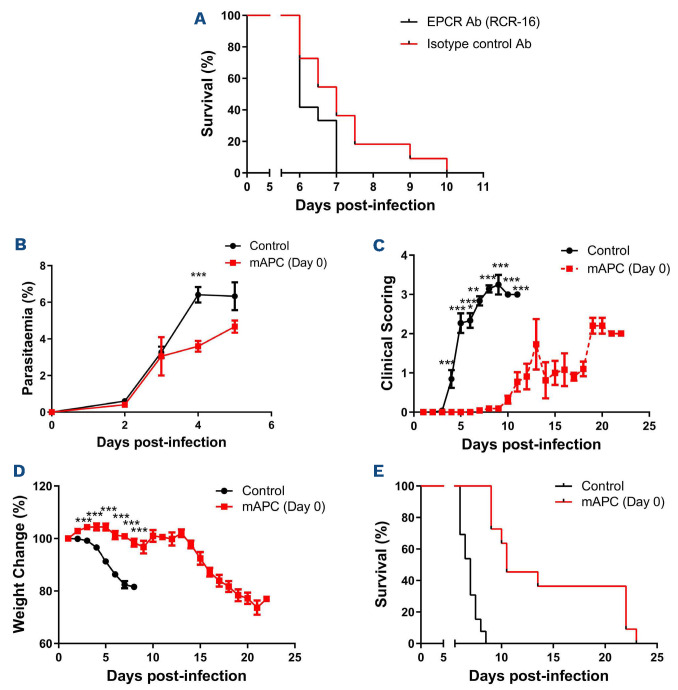Figure 2.
Figure 2. Recombinant anticoagulant activated protein C significantly attenuates clinical progression and markedly improves overall survival in experimental cerebral malaria. (A) In order to determine if endothelial protein C receptor (EPCR) plays a role in experimental cerebral malaria (ECM) pathogenesis, mice were pretreated with the EPCR blocking antibody RCR-16 or an isotype control antibody prior to infection with 2x106 Plasmodium berghei ANKA parasites. Twelve mice were treated in the RCR-16 and 11 in the isotype control groups. Overall survival was significantly reduced in mice treated with RCR-16. In order to investigate whether recombinant murine anticoagulant activated protein C (mAPC) administration influences ECM progression, mice were pretreated with 10 �g mAPC immediately prior to P. berghei infection and a second 10 �g mAPC dose was administered 4 hour later. Twelve mice were treated in the mAPC and control groups. Mice treated with recombinant mAPC exhibited (B) mildly reduced parasitemia at day +4, (C) attenuated clinical ECM progression (D) reduced weight loss and (E) significantly increased overall survival (*P<0.05, **P<0.01, ***P<0.001).

